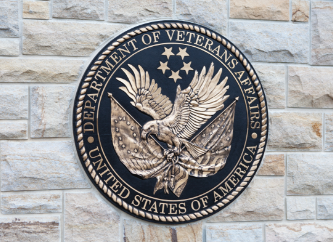
Provider Pulse
February 2018
Welcome to February and 2018!
We hope you’ve begun settling into 2018, and to help, we have some great articles this month! From helping you understand the difference between TRICARE and TriWest, to offering tips on lowering appointment cancellations, we hope you’ll find this February’s Provider Pulse full of useful information.
In This Edition:
Should You Bill TRICARE or TriWest?
TRICARE and TriWest: the names are similar, so how can YOU know who to bill?
If you don’t understand the differences, you might bill the wrong entity and have trouble receiving payment. Here’s the breakdown to help:
TRICARE
TRICARE is the nation’s health care benefit for active duty Service members, National Guard/Reserve members, military retirees, and their families. TRICARE is a program under the U.S. Department of Defense and receives its funding through the defense budget. The key to remember for TRICARE is it covers those who are currently serving in, or have retired from, our Armed Forces.
TriWest
TriWest Healthcare Alliance (that’s us) is a private company that the Department of Veterans Affairs (VA) contracts to administer its community care programs. VA covers those who once served in the military, but have now either separated or retired from the military and become Veterans.
Here’s the key: if you have a TriWest authorization, bill TriWest. Do NOT bill TRICARE.
TriWest previously administered the TRICARE program for many years across the western U.S. However, in 2013, TriWest stopped administering TRICARE and instead partners with VA to serve Veterans.
This means TriWest is no longer associated with TRICARE, the Department of Defense, or active duty military members. Instead, TriWest solely administers the VA programs for Veterans.
Still need help understanding who to bill? Sign up for one of our Billing Processes and Procedures webinars, conducted by our Provider Education team.
Get Your Questions Answered at a Training Webinar!
Wondering when to file a secondary authorization request (SAR), or how to submit a claim, or what the process is for fulfilling prescriptions for Veterans?
Attend one of our live, interactive webinars!
Our webinars are presented by members of our Provider Education team and are at no cost to you. The purpose? To ensure you know how to properly administer VA’s community care programs, so Veterans get the care they need.
What do the webinars cover?
Currently, we host three different types of webinars:
- Introduction to PC3 and Choice (about two hours)
- Background and TriWest’s role
- Appointing and authorization process
- Ancillary providers
- Emergency care
- Medication fulfillment process
- SAR process
- Claims and billing
- Medical documentation requirements
- Resources
- Billing Processes and Procedures (about one hour)
- Background and TriWest’s role
- Brief overview of the appointing and authorization process
- Differences between TRICARE, VA, Medicare, and Medicaid
- Claims and billing
- Medical documentation requirements
- Resources
- Behavioral Health: Introduction to PC3 and Choice (about two hours)
- Background and TriWest’s role
- Appointing and authorization process
- Ancillary providers
- “Operation Treat a Veteran” behavioral health training
- Medication fulfillment process
- SAR process
- Claims and billing (specific to behavioral health providers)
- Medical documentation requirements (specific to behavioral health providers)
- Resources (specific to behavioral health providers)
Register for a webinar by visiting our webinar schedule and following the instructions to sign up.
Timely Claims Deadlines Now in Full Effect
Over the past nine months, TriWest has been bringing claims submission timeframes back in line with VA program filing limits. The VA deadline for submitting Patient-Centered Community Care (PC3) or Veterans Choice Program (VCP) claims is 180 days from the date of service and it is now in effect for all claims.
What does this mean for you?
If you have outstanding claims, claims you need to send for reconsideration/appeal, or claims you need to send to TriWest as a secondary payer, please submit them via the submission timeframes outlined below.
- Claims are no longer accepted:
- As of Sept. 1, 2017, for a date of service (DOS) prior to Jan. 1, 2016
- As of Dec. 1, 2017, for a DOS prior to Sept. 30, 2016
- As of Feb. 1, 2018, for a DOS prior to June 30, 2017
- For all PC3 or VCP claims with a date of service on or after July 1, 2017, TriWest will enforce VA’s 180-day timely filing requirement. Providers must submit claims within this timeframe.
- Providers have 90 days from the date of the remittance advice from TriWest to submit an appeal.
- For a claim paying secondary, providers have 90 days from the date on the primary commercial payer’s remittance advice to submit the claim.
Claims denied for timely filing cannot be billed back to the Veteran or VA.
Overall, the sooner you submit your claims, the better! Submitting claims within the suggested 30-day timeframe helps VA monitor budget and utilization. It also reduces carrying costs for your practice and improves cash flow.
Submit Claims to Wisconsin Physicians Service (WPS)
TriWest uses WPS for all claims processing. After submitting medical documentation, send claims either:
- Electronically through your existing clearinghouse
- Set up an EDI to submit electronic claims by calling WPS at 1-800-782-2680 and selecting Option 1. Then submit claims as you would for other payers.
- Via mail for printed claims to: WPS-VAPC3, PO Box 7926, Madison, WI 53707-7926.
Please do not submit handwritten claims; these may not scan correctly.
Lower Appointment Cancellations With This One Trick
Under VA’s community care programs, providers are not allowed to bill Veterans for no-shows. So how can you be sure new patients keep their appointments?
According to data released from Athena Health, one tactic might help: lessen the lead time for initial appointments for new patients.
Athena released the following cancellation rates for new patients. The data is broken down by “lead time to the first available appointment”:
- 32%- More than 4 weeks
- 25%- 4 weeks
- 22%- 3 weeks
- 19%- 2 weeks
- 15%- 3 to 7 days
- 12%- Next Day
- 10%- Same Day
In other words, give your new patients an appointment as soon as possible to increase the chance that they’ll keep it.
And remember! If a Veteran misses an appointment, you may NOT bill him or her for the no-show. All the more reason to try and schedule appointments as soon as possible!













